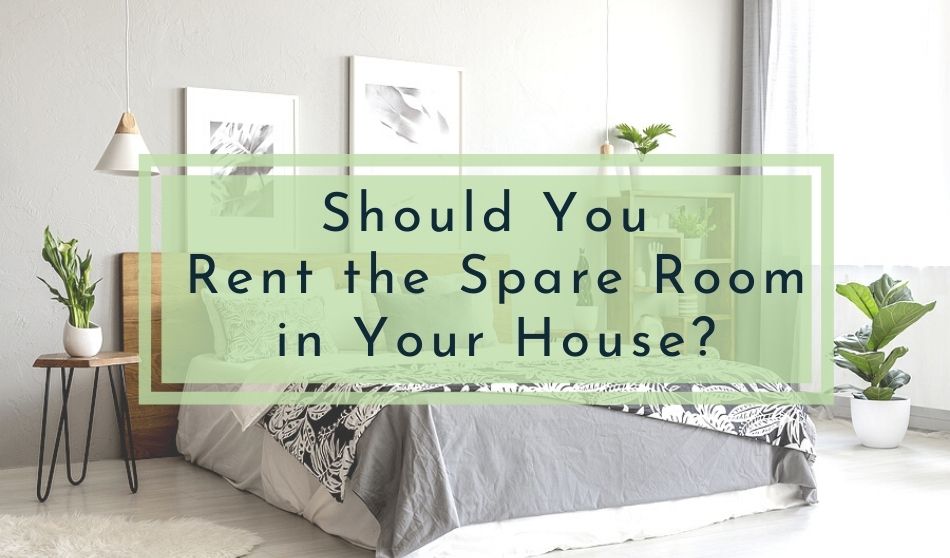
These days, it’s common for homeowners to rent out a spare room in their home. For many, there’s no better way to earn some extra income — and on the flip side, it’s a cheaper option for renters. But there’s a lot more to this process than meets the eye. Take a look.
Rules and Regulations
Before you start listing a long-term rental, it’s essential to take a few considerations into account. After all, you’re about to become a landlord. The position comes with a few rules and regulations.
First, you’ll want to research the landlord-tenant laws in your state. Each location varies in several ways. For example, some states allow victims of domestic violence to alter their leases. Make sure that you understand every aspect of these laws fully. Similarly, you may need to think about other agreements. If you own a condo, it’s possible that renters aren’t allowed at all.
Because you plan to rent out a single room, there are other points to remember. Is there a separate door for the tenant? Can they access the bathroom and kitchen as needed? City ordinances vary, so take a look at yours specifically. You may find that specific rules impede your ability to live comfortably in your own home.
Once you’ve determined the legality of the situation, you can look for candidates. Conduct background checks and draw up detailed contracts when the time comes.
Short-Term vs. Long-Term Occupants
Of course, you may not necessarily be thinking about a year-long lease. With the growth of Airbnb and other short-term rental platforms, it’s easier than ever to make choices about what kind of landlord you want to be. Tenants can stay for a weekend or for months at a time.
Each scenario has its ups and downs. But either way, you may have to fix up your property to make it more attractive. There’s a lot to contemplate before you make a decision.
Short-Term
The beauty of the short-term tenant is that they come and go rather quickly. Landlords who live near the beach or in popular cities tend to favor this option. They list their spare rooms for up to a week. As a result, travelers can enjoy their vacation without the hassle of a hotel.
For newbie landlords, a short-term agreement through a service like Airbnb may be best. This experience will allow you to make some money and test whether or not you want to pursue things further.
But if you’re after a more consistent income, you’ll have to bet on an influx of guests. You’ll also need to make upgrades that earn your extra room plenty of 5-star reviews, which can range from updated decor to changes in flooring, bathrooms, and other fixtures.
Long-Term
On the other hand, long-term renters provide regular payments. You won’t need to screen them as often, because they stick around for longer. You’ll also be able to get to know them on a personal level. Such a relationship isn’t possible with short-term tenants.
That said, long-term occupants come with their own set of drawbacks. After all, this person will be in your space for several months. They’ll use your laundry room and invite friends over to hang out in your backyard. Of course, you can prevent certain activities through the lease. But for a time, your home becomes theirs.
Pros and Cons of Renting Your Spare Room
In a broader sense, there are many pros and cons to consider.
Pros
For many landlords, the supplemental income is the best part. On top of that, homeowners interested in this process can qualify for a significant tax break. If you register your home as a pass-through entity, a deduction could help you offset the rest of your costs.
There’s a reason many beginning investors tout the benefits of “house-hacking.” Renting space you’re not using helps you manage mortgage costs, utilities and other expenses each month. If you have dreams of expanding your real estate portfolio, this arrangement can help you test the waters.
Then, there’s the possibility of turning your room into an Airbnb. Short-term renters allow for a lot of flexibility. Essentially, you can make money as often as you like — as long as you have a reliable stream of guests.
Cons
Rental income is taxed, so you’ll find that much of your extra cash goes toward that expense. Similarly, it’ll cost money to provide tenants with utilities. The contract that you and your occupant intend to sign binds both of you legally. As such, you’re on the hook for whatever promises you make — even when you can’t afford them.
Then, there’s the reality of sharing a property with a virtual stranger. When you take in a long-term tenant, the spare room is no longer your own. There are legal restrictions that dictate when you may enter the tenants’ premises. You’ll also have to decide how to treat common spaces, such as the kitchen.
If worse comes to worst, a renter may not leave when the time comes. Then, you’ll have to evict them and possibly head to court.
Is Renting a Room Right for You?
Whether or not you decide to take this path is up to you. Some find that short-term renters are best for them, while others need the consistency that long-term occupants provide. Each situation varies, so take every detail into account before you make a decision.